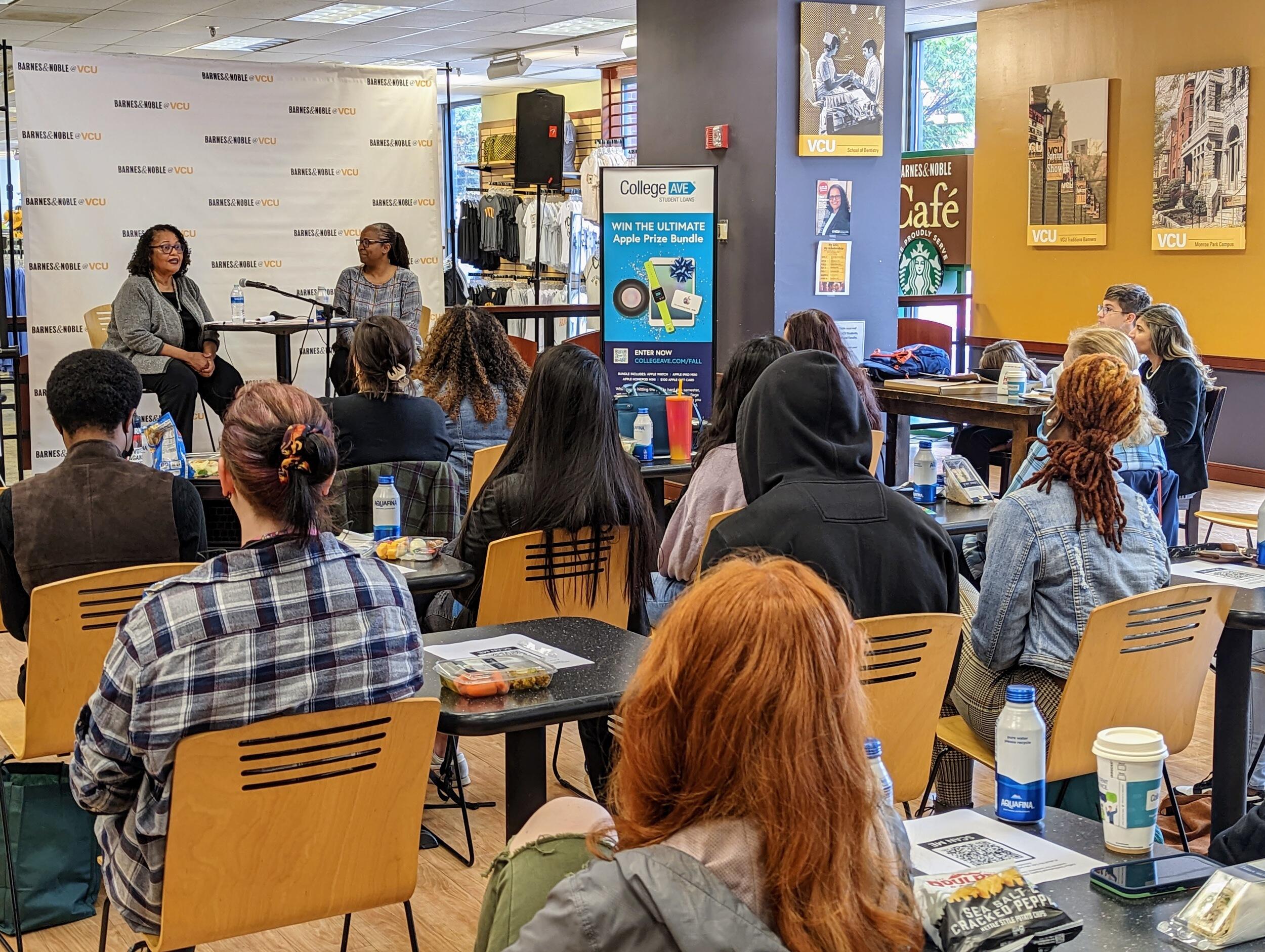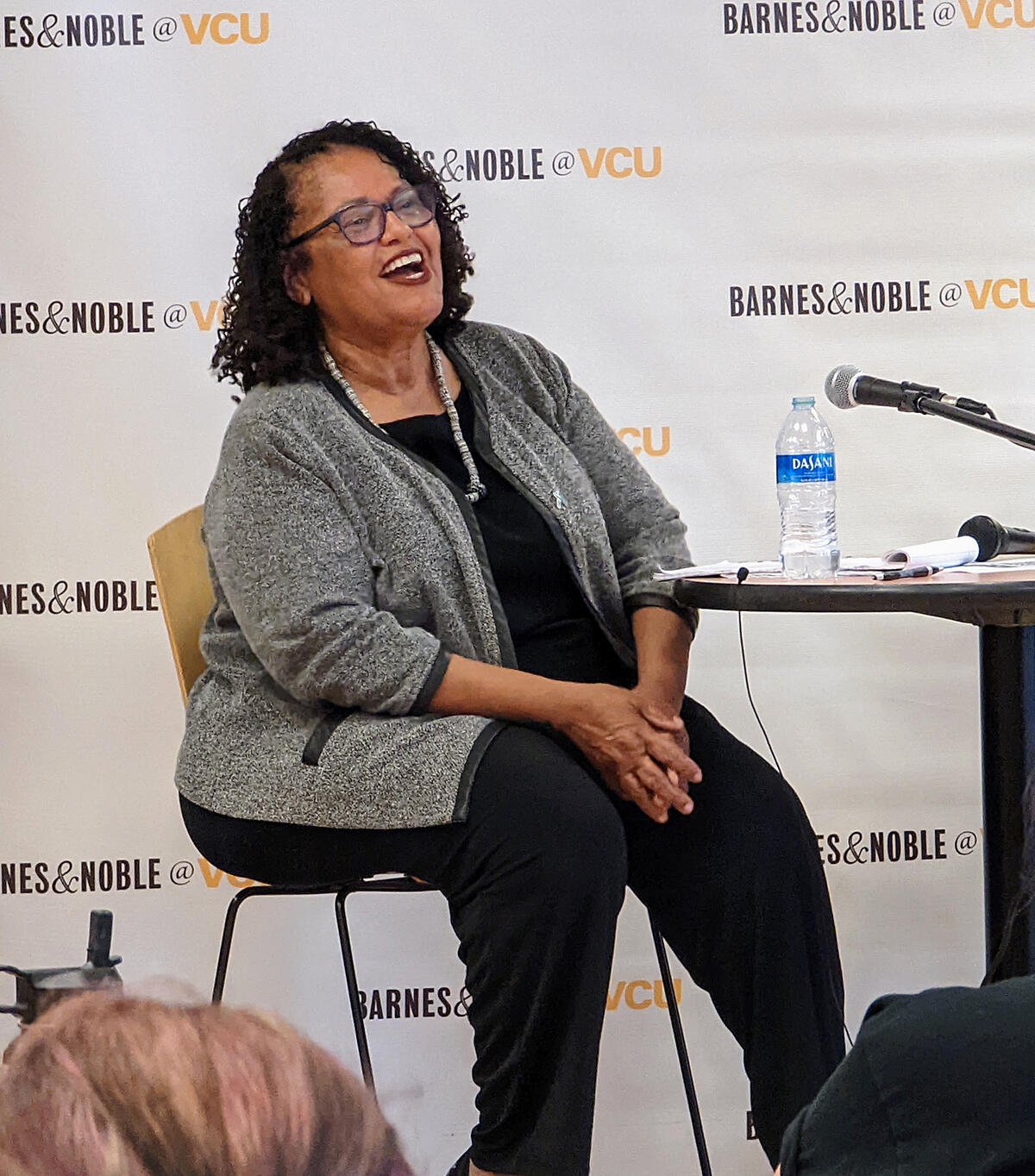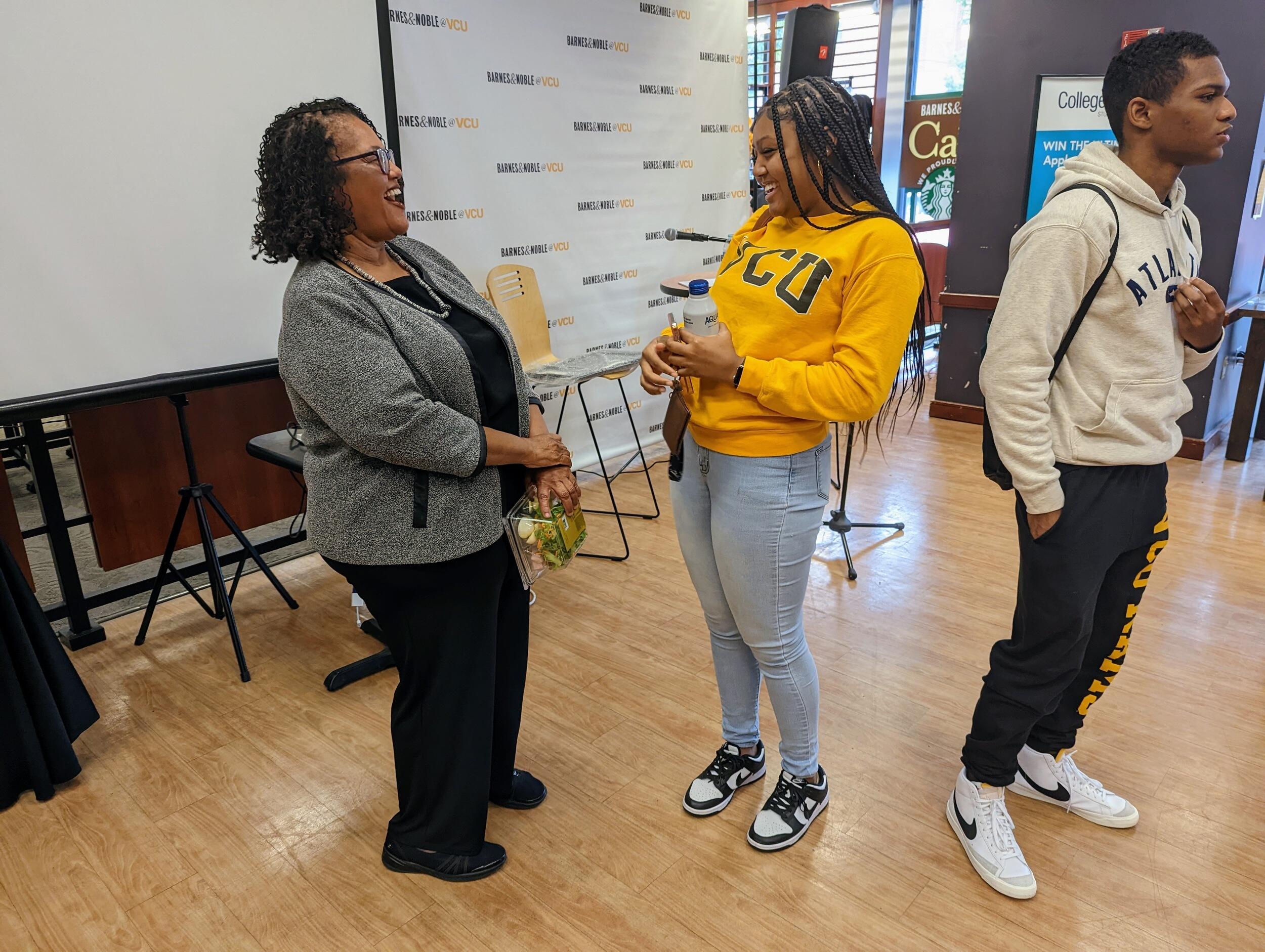
Dec. 8, 2022
Growing up in the segregated South inspires professor to pursue avenues that bring people together
Share this story
Faye Belgrave, Ph.D., grew up perplexed by the social dynamics of her rural southern community.
“I was just so fascinated to try to figure out how come there’s no diversity in this community,” she said. “Why was it that Black people don’t talk to white people except in a work environment?”
That fascination with life in Southampton County, Virginia, in the 1960s and 1970s led Belgrave to enroll in college at the age of 17 seeking a way to improve connections among individuals and groups, so she ended up studying social psychology.
“I grew up in an environment where it was just Black and white,” she said. “This was the state of Virginia. There were no Jews. There were no Asians. There were no LGBTQ+, at least not openly. It was very segregated, and I wanted to understand, ‘How do we bring people together?’”
Belgrave, who earned her Ph.D. in 1982 and began teaching at VCU in 1997, is a University Professor in the Department of Psychology at VCU’s College of Humanities and Sciences; the director of the VCU Center for Cultural Experiences in Prevention; associate dean for equity and community partnerships in the College of Humanities and Sciences and an iCubed scholar in the Culture, Race and Health core.
She shared some of her academic journey as part of the My Life, My Scholarship Symposium series this semester. The series features monthly speakers from the Institute for Inclusion, Inquiry and Innovation (iCubed) and Hubert H. Humphrey Fellowship Program examining how their lived experiences have impacted their research and scholarly interests.
Finding strengths
Belgrave’s pursuit of connection has inspired a career of award-winning research and scholarship in topics that include disease prevention, health equity and African American identity.
Along the way, she became the primary author of the ground-breaking textbook “African American Psychology: From Africa to America,” which was first published in 2005. Belgrave said work is underway to publish the book’s fifth edition.
“It’s the most widely-used textbook on African American psychology abroad,” she said.
Belgrave said that book, like her teaching, explores how people of African descent integrate their indigenous and cultural values with their experience of living in contemporary American society. She said that is a common approach today, though it wasn’t when she began her career.

“Everything about a person, the person brings their own strengths. No matter where the person lives, where the person originates from, there are some strengths. Let’s use these strengths to move forward,” she said.
Belgrave also recently wrote a workbook titled, “Finding Her Voice: How Black Girls in White Spaces Can Speak Up and Live Their Truth,” with the help of her daughter, Ivy Belgrave, and Angela Patton, an elementary school teacher and community partner who is the CEO of Girls for A Change. The workbook shares lessons taught in the classroom and by the organization. Belgrave likes the response she gets to the book from community members but said she could never have written that alone.
“I needed Angela and Ivy to put it in the voice of girls. That’s kind of challenging. I’m used to writing for college students,” Belgrave said.
Be a good citizen
Belgrave’s passion really shows when she discusses her community-engaged work and the tangible difference she believes it makes in the lives of real people.
“Most of my community partners, I learned a lot from them — probably more than they’ve learned from me and also it’s given me an opportunity to move outside of the academy, so to speak,” she said. “Be respectful and honestly try to learn from people within their space. I know it sounds really simplistic, but it sort of works for me because I appreciate people outside of my domain opening their doors to me and I never let them forget that I appreciate them for what they’re doing.”
Belgrave said there are many ways for her fellow faculty and staff members to engage in the community, and she urges individuals to find their way to it.
“I think about community engagement broadly,” she said. “You might not do community-engaged research, but maybe you can judge a science fair. There’s the research. There’s the engagement. There’s the service-teaching. You want to be a good citizen in the space where you live.”
As for students, Belgrave says if you never leave campus, you’ll miss out on the true VCU experience.
“It is so important to be connected to something in your community — and not just the restaurants — because you want to be a good citizen. And if you don’t venture beyond VCU, except for recreational activities, you’ll miss that,” Belgrave said. “There are so many exciting opportunities, some with academic credit, some with pay, some with real experiences.”
Working toward equity
Belgrave says VCU, like most universities, has yet to find ways to value community engagement work alongside more traditional activities when it comes to tenure and promotion decisions, and she wants to keep pushing the institution in that direction.
“We are not an equitable university. We’re not an inclusive university. Have we made progress in inclusivity? Of course. But you know, I don’t know that in my lifetime we will see true inclusion. That’s just something we have to live with,” she said. “I want there to be equity for what people do. We know that oftentimes women and minority faculty do disproportional work and service and don’t get the pay or the recognition for it. I think we have a long way to go, but I think we’re a lot better on that than we were 25 years ago when I came to VCU.”

Throughout her career, Belgrave has earned many awards for her teaching, research and service, including a Senior Lifetime Achievement Award and a Psychology and AIDS Leadership Award from the American Psychological Association, the Association of Black Psychologists’ Distinguished Faculty Award, an Outstanding Faculty Award from the State Council of Higher Education in Virginia, the Substance Abuse and Mental Health Services Administration’s Leadership Award in Prevention, and VCU’s Presidential Award for Community Multicultural Enrichment, among many others. So, what’s next for her?
“I still have not figured out what I want to do with this next step,” she said. “I continue to amaze myself about things that interest me, even though I am at the age I could have retired five years ago.”
VCU’s Office of Institutional Equity, Effectiveness and Success invites the community to attend future My Life, My Scholarship events for the 2022-23 academic year. The next event will feature Kristina Hood, Ph.D., an assistant professor in the Department of Psychology at VCU’s College of Humanities and Sciences and a scholar in the iCubed Culture, Race and Health core, and will take place at noon on Feb. 1 at VCU Barnes and Noble (1111 W. Broad St.). Lunch will be provided.
This article is part of a series of faculty profiles published by the Office of Institutional Equity, Effectiveness and Success. The rest of the series can be found at blogs.vcu.edu/ies/.
Subscribe to VCU News
Subscribe to VCU News at newsletter.vcu.edu and receive a selection of stories, videos, photos, news clips and event listings in your inbox.









